| 1 |
Talk Series: Risk and Operations Management Seminar
Date: 5th February 2018
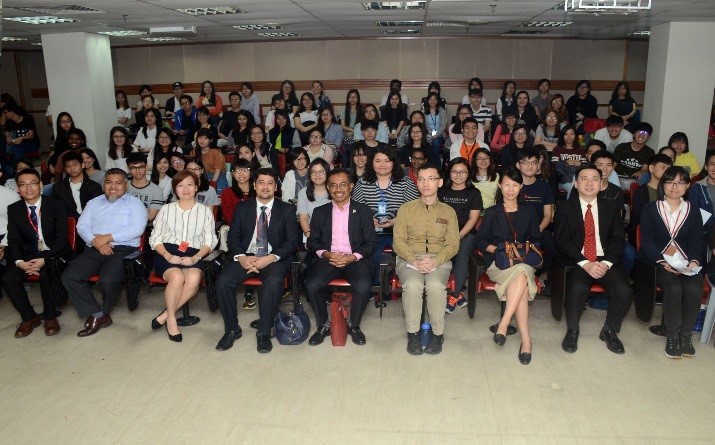
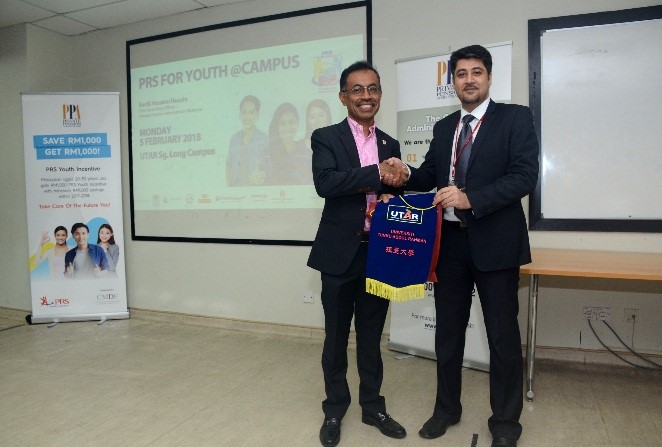
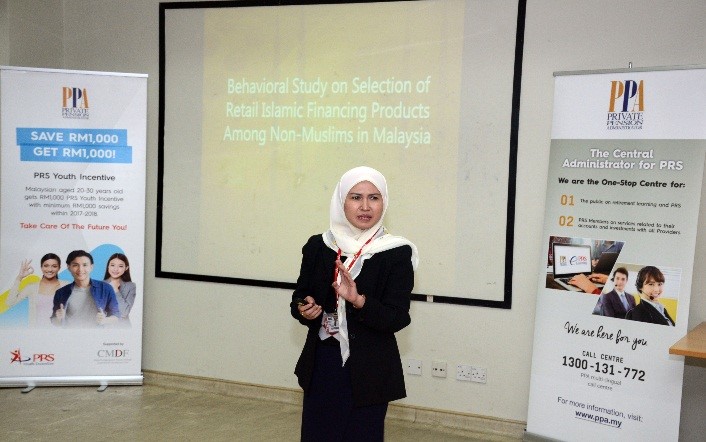
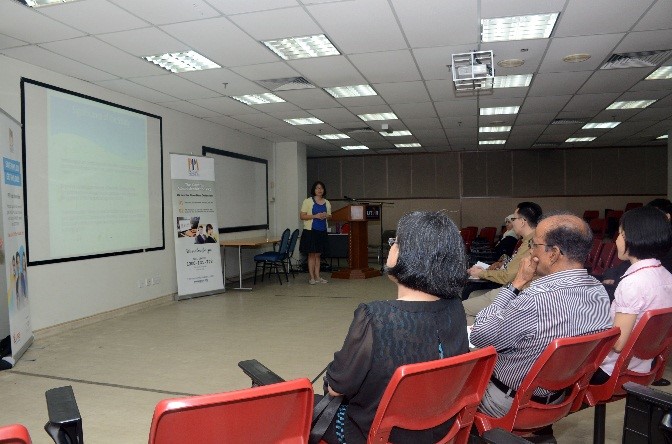
CSDCSR organized a one-day seminar which relates to risk and operations management where the key note speaker invited for the event is the CEO of Private Pension Administrator Malaysia (PPA), Mr. Husaini Hussin. He shared with the audiences the importance of preparing for retirement and one of the ways is by investing into Private Retirement Schemes (PRS).
Subsequently, the event continued with five different knowledge-sharing which includes the following:
Title no. 1 : Effects of Tax Incentives on Environmental Behaviours of SMEs and Corporations in Malaysia
Funding secured: UTARRF
Name of presenter: Ms. Shamini a/p Kandasamy
Title no. 2 : Digital Business Framework for Malaysian SMEs in Today’s Digital Economy
Funding secured: FRGS-MoHE
Name of presenter: Mr. Raymond Ling Leh Bin
Title no. 3: Application of Forecasting Techniques for Rubber Economy Development
Funding secured: UTARRF
Name of presenter: Dr. Aye Aye Khin
Title no. 4 : Behavioural Study on Selection of Retail Islamic Banking Products Among Non-Muslims in Malaysia
Fund applied: -
Name of presenter: Ms. Salizatul Aizah binti Ibrahim
Title no. 5 : Global Value Chains and SMEs in Malaysia
Funding applied: -
Name of Presenter: Dr. Ngoo Yee Ting & Ms. Tiong Kui Ming
|
| 2 |
Workshop I, Research Methodology
Date: 18th May 2018
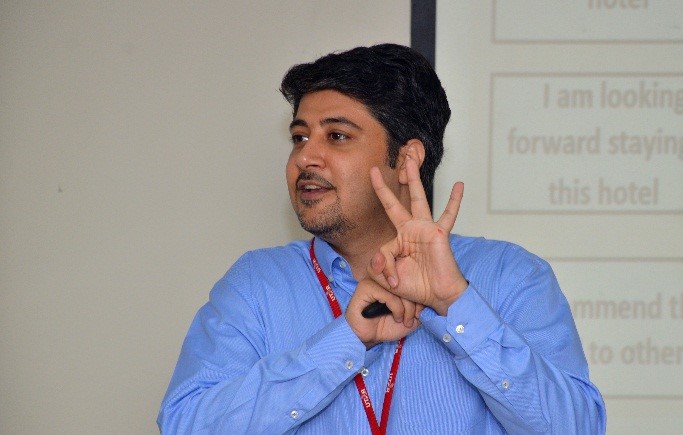
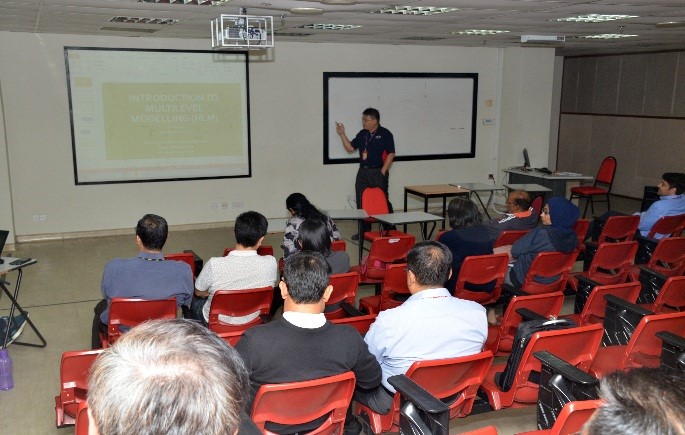
The center organized a half-day workshop for the staff whereby two internal trainers were tasked with presenting the materials related to conducted research. Dr. Falahat presented on the topic related to quantitative research where he touches on the aspect of sample size calculation, the use of mediator and moderator variables in research. The second speaker, Mr. Sia Bik Kai, introduced the audience to the concept of multilevel modeling in research
|
| 3 |
Workshop II, Research Methodology
Date: 25th May 2018
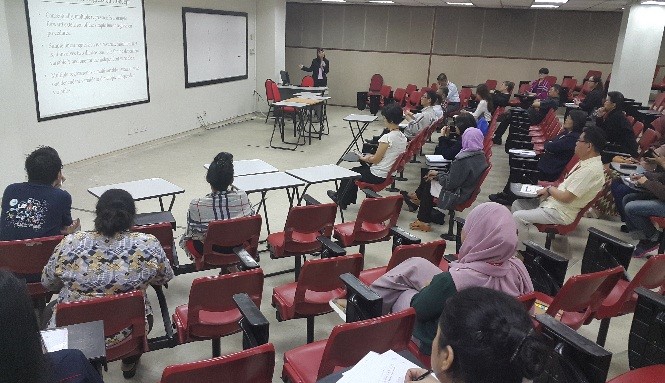
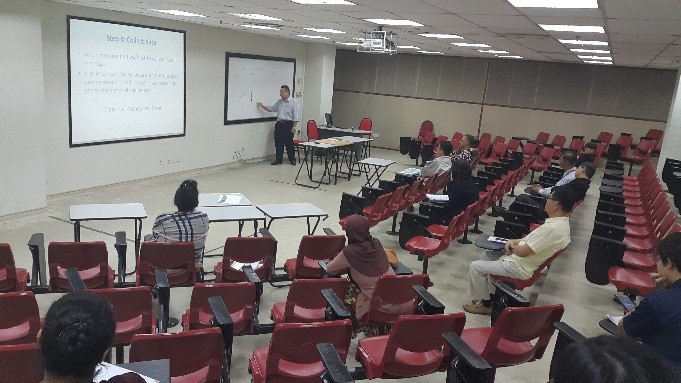
The center organized the second series of the research methodology workshop by inviting another two internal trainers. Dr. Lee Siew Peng was sharing with the audience in terms using SPSS to run secondary data collected. She was sharing the usage of Simple Linear Regression and Multiple Linear Regression. After lunch, Dr. Chong Shyue Chuan brought with him the knowledge sharing of what are some of the best practices to be used by primary data collectors when collecting data.
|
| 4 |
Talk Series: The Logistics Ecosystem: How are we measuring up?
Date: 7th August 2018
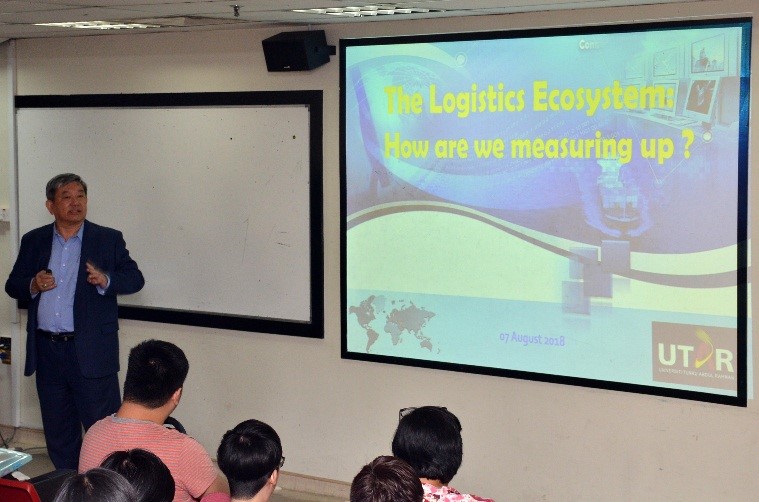
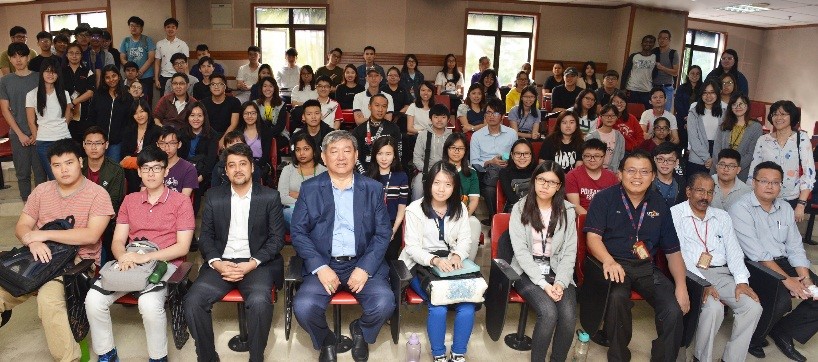
Mr. Kenneth Tiong who has been active in the Logistics and Transport for the more than 35 years. He introduced logistics and shared the concept and impact of delayed logistics through a video screening. “Logistics is about the ‘Six R’, namely Right goods, Right quantity, Right place, Right time, Right cost and Right condition. Logistics refers to the process of planning, implementing and the controlling of procedures for an efficient and effective transportation and storage of goods including services, and related information from the point of origin to the point of consumption for the purpose of conforming to the customers’ requirements. In short, logistics is about a set of distribution-activities that make products available to customers, when and where they need them.” Logistics management is about how you manage the activities of logistics. Logistics management commonly includes the activities of transportation, warehousing, inventory and stock control, communication and information systems, packaging and manufacturing management. It is about the science and art of moving goods.
Moreover, he shared with the audience on the importance of logistics, what does the term “unstructured supply chain” and “planned or optimized supply chain” means, why logistics is related to supply chain management and what are the three movers in shaping the landscape. “Logistics is crucial to a company because 10% of the total sales revenue of a company goes into logistics,” said Kenneth Tiong
|
| 5 |
Talk Series: The Transition Pathway from Goods & Services (GST)
to Sales & Services Tax (SST)
Date: 17th August 2018
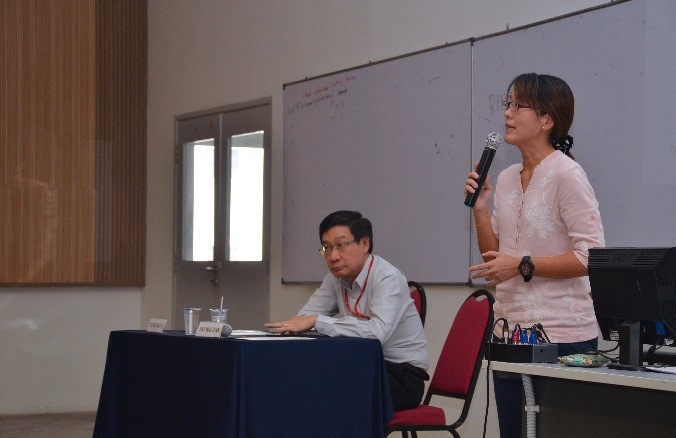
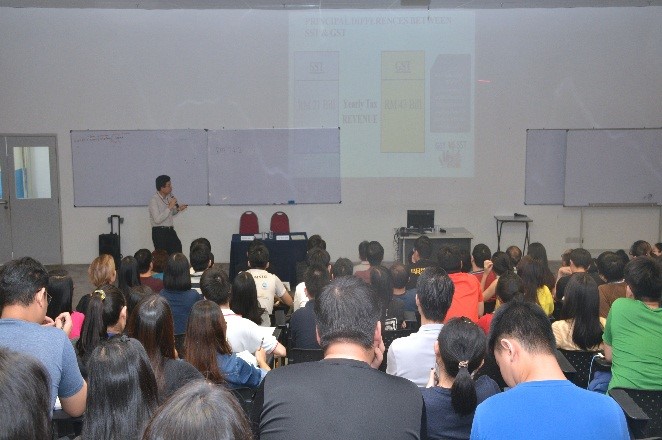
A joined collaboration between the Centre for Extension Education with Centre for Sustainable Development and Corporate Social Responsibility in Business organized a talk about the transition from GST to SST implementations and its expectations.
The talk aimed to assist the audience in taking the leap back into SST after being in GST for more than three years. It also aimed to bring to light the importance of having a better understanding of the transition to avoid being taken advantage of, or worse, profiteering.
“Businesses are allowed to make profits but not unreasonably high [profit],” said Faculty of Accountancy and Management (FAM) Leong May Li. She also urged businesses to check whether they are profiteering so as to not breach the anti-profiteering law in Malaysia. She also shared with the audience the calculation method that will help to ascertain whether a business is profiteering or not. “Relook into business plans and comply with changes of regulations. As for consumers, this transition is good for them. However, it is equally important to be a smart consumer,” advised Leong.
FAM lecturer Yap Wai Onn shared with the audience his insights on the similar issue. In his talk, he covered the key differences between GST and SST as well as the preparation needed to embrace the SST. He also advised the audience to be attentive and observant when making transactions during the period of transition. “Revise all existing contracts and agreements to ensure clauses allowing SST changes as an additional item on top of the price stated,” said Yap, suggesting that a re-negotiation of new and more favourable terms should be done for contracts and agreements.
|
| 6 |
Talk Series: Understanding Qualitative Techniques for Multi-Case Analysis
Date: 1st October 2018
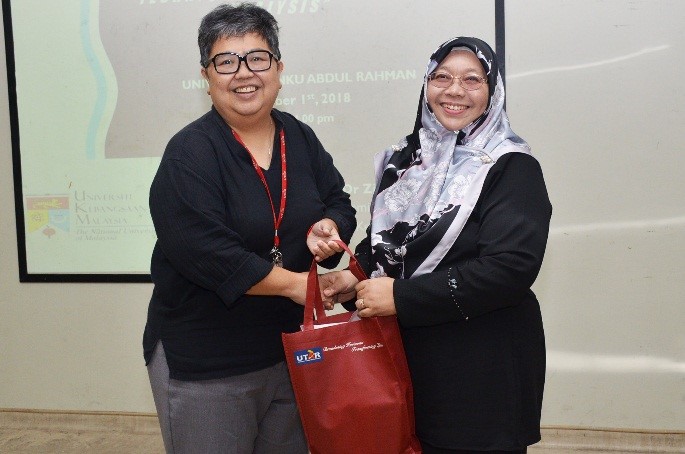
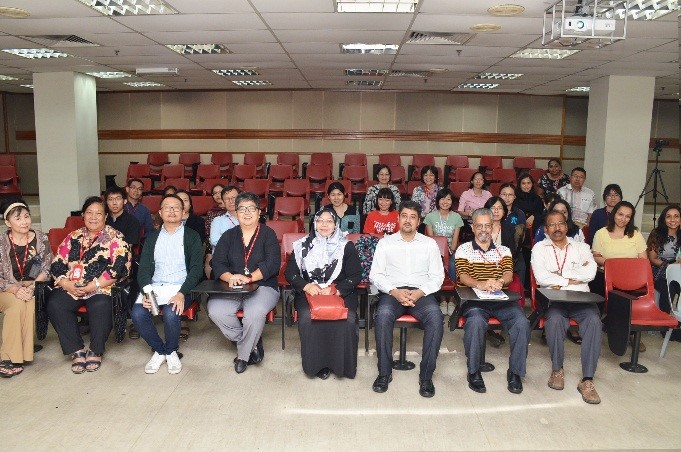
The Centre for Sustainable Development and Corporate Social Responsibility in Business (CSDCSR) organised a talk titled “Understanding Qualitative Techniques for Multi-Case Analysis” on 1 October 2018 at Sungai Long Campus.
The invited speaker was Assoc Prof Dr Zizah Che Senik from the Faculty of Economics and Management of Universiti Kebangsaan Malaysia (UKM). The objectives of the talk were to identify the key elements in designing and implementing qualitative case study research projects, as well as to highlight some application of the multiple-case study designs that are used in identifying or investigating the consistent patterns of behaviour and to discover new and divergent themes.
Dr Zizah started the talk by defining qualitative research and explaining the basic differences between qualitative and quantitative research. She mentioned that qualitative research is rather theory-developing, not theory-testing. She also explained, “Developing a theory does not mean you have to come up with a new theory. You may enhance the existing theory or add up values, variables or more principles and knowledge about the theory. It is quite impossible to come up with new theories which are mostly developed by the scholars. This is the common mistake made by PhD students.”
“Previously, it was more difficult to publish using qualitative methods than it is to publish using quantitative methods because there are no generalisation and statistical analysis. But now, it is accepted by many scholars,” said Dr Zizah, adding that qualitative research also uses scientific procedures like quantitative research. She also talked about the characteristics of qualitative research and explained the five types of qualitative research, which included the biography (life history and oral history), phenomenology (the lived experience), grounded theory, ethnography, and case study. She gave the explanation on how to distinguish the case study that is normally used in the classroom with the case study conducted for publication. She also shared about case study design and its five important components, including case study questions, case study propositions, units of analysis, logic thinking data to propositions and the criteria to interpret case study results. She also shared some qualitative research analysis techniques, explained single and multiple case analysis and presented the participants with some useful examples.
|
| 7 |
Talk Series: Impact of Climate Change on ASEAN Food Security:
Strategies for the ASEAN Member States
Date: 31st October 2018
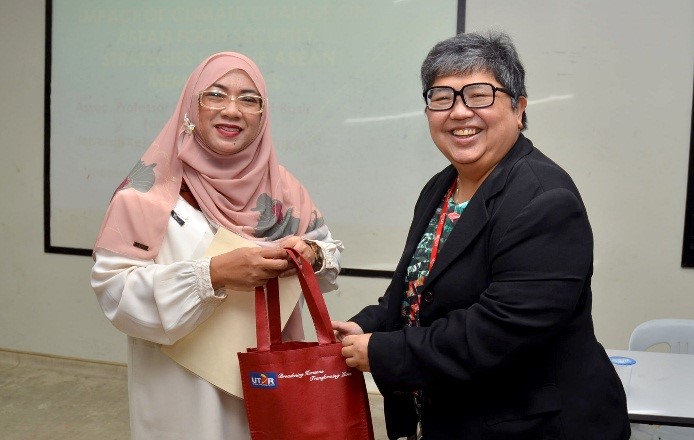
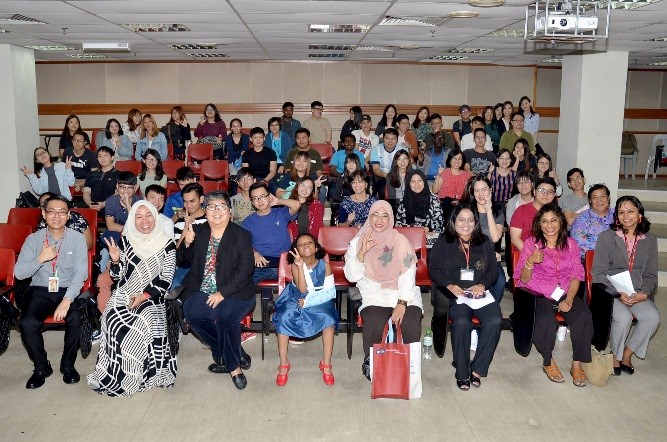
The external invited speaker, Assoc Prof. Dr. Salawati shared her experience on the issues related to the impact of climate change on Asean countries food security. She shared some of her knowledge in terms of what are the strategies that the Asean members can do.
|
| 8 |
Talk: Private Retirement Scheme (PRS)
Date: 15th November 2018
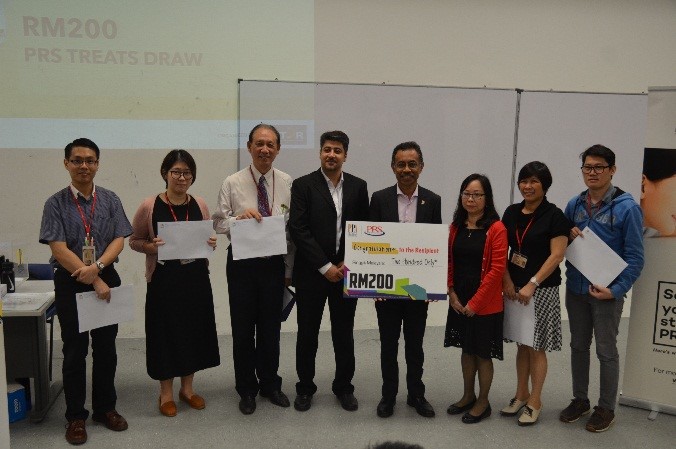
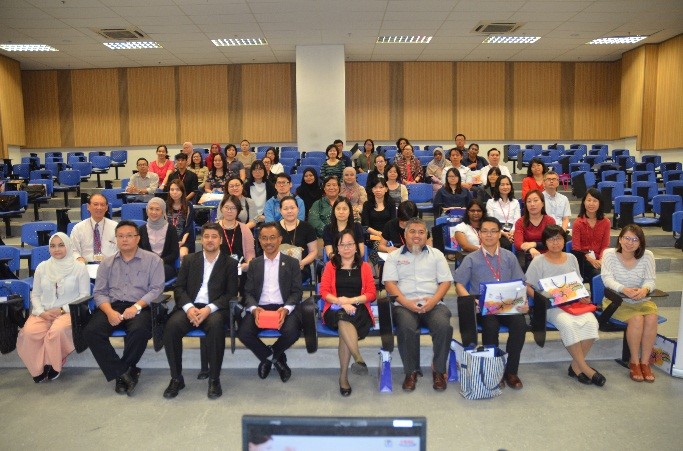
The center together with the Department of Human Resource organized a talk on the retirement schemes specially for the staff of UTAR. PPA Malaysia Chief Executive Officer Mr. Husaini shared about the needs to start savings earlier for the purpose of retirement.
According to him, most Malaysians rely on their savings to fund their retirement, however, more than 50 percent of Malaysians are not financially ready for retirement. “If people do not have sufficient saving to sustain their lifestyles after retirement, the best way is to keep working. Otherwise, it would result in many not being able to have the retirement life they want,” he explained.
In order to have a better understanding on the need for retirement saving, he explained the three concerns—adequacy, sufficiency and sustainability to the participants, and encouraged them to start early to save for their retirement. “The scheme is not only designed for you to save for retirement but also an investment where you can enhance your saving with a growing market,” he said.
|
| 9 |
Talk: Theory, Theoretical Framework and Its Relation to Research Model
Date: 16th November 2018
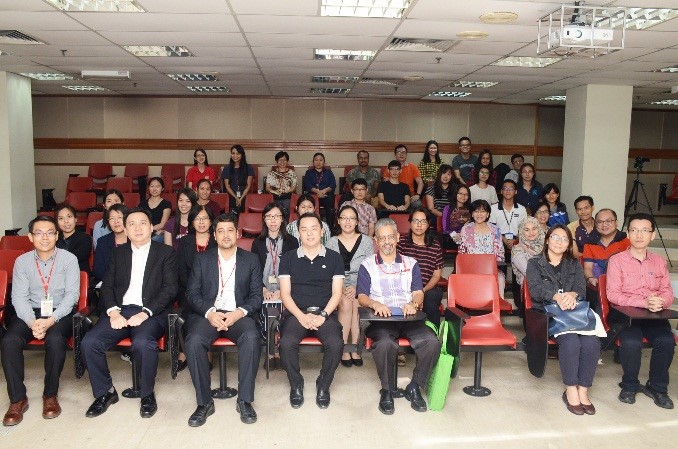
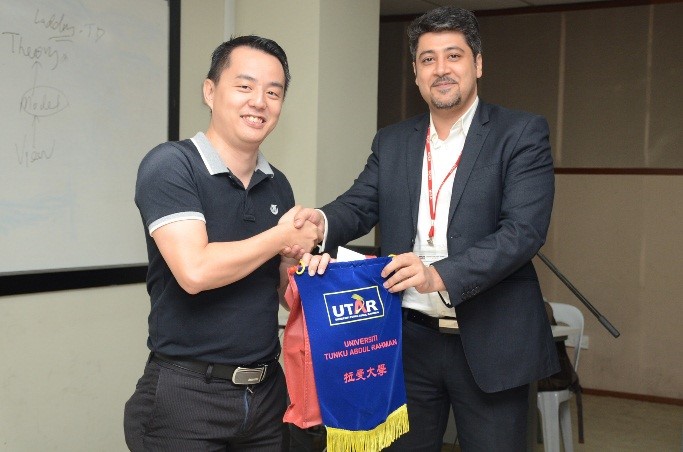
Theory, Theoretical Framework, and its relations to Research Model” aims to address the importance and rationale of forming a theoretical framework that served as the structure to hold or support a theory of a research study and to highlight on how to widen a theoretical framework within a broader context of related frameworks, concepts, models, or theories.
In his talk, he mentioned about what is theory and what theory is not, theory testing and theory refinement, theory application and theory generation, theoretical framework, how theory dictates path relationship, moderation and mediation as well as the practical guide for making a theoretical contribution.
“Theory is a coherent set of general propositions used as principles of explanation of the apparent relationship of certain observed phenomena. Theories are constructed in order to explain, predict and master phenomena such as relationships, events or behaviour. In many instances, we are constructing models of reality. A theory makes generalisations about observations and consists of an interrelated coherent set of ideas and models,” said Dr Francis. He explained the building blocks of theory development and said, “The four essential elements of a theory answer the ‘What’, ‘How’, ‘Why’, and ‘Who’. Combining ‘How’ and ‘What’ allows a model to be produced and tested. ‘How’ and ‘What’ tends to lead to empirically dominated discussions and not theoretical discussion. In sum, ‘What’ and ‘How’ describe while ‘Why’ explains and most of the time ‘Why’ is missing.”
Dr Francis is a senior lecturer, specialising in micro/behavioural strategy and management. He holds a PhD in Management from Putra Business School, Universiti Putra Malaysia and is currently co-managing editor of the Journal of Applied Structural Equation Modelling (JASEM). He serves on an expert panel for Sarawak Research Society (SRS), a non-profit making and scholarly body in Sarawak and professional facilitator for Tunku Abdul Rahman University College. He is a research fellow for the Institute for Leadership, Innovation and Change (iLead4Change). He serves as a reviewer for several high impact journals indexed by Scopus and Web of Science in the field of business and management. His research interest is in strategy and management, specialising in micro-foundation of strategy. He teaches strategic management, research methodology and quantitative data analysis at both undergraduate and postgraduate levels. He is well-versed in the application of partial least squares structural equation modelling technique and has conducted workshops at both basic and advanced levels.
|
| 10 |
Talk Series: The Key Essential of Budget 2019
Date: 23rd November 2018
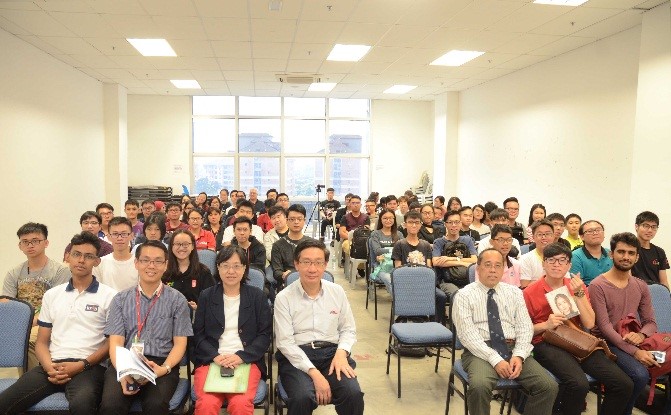
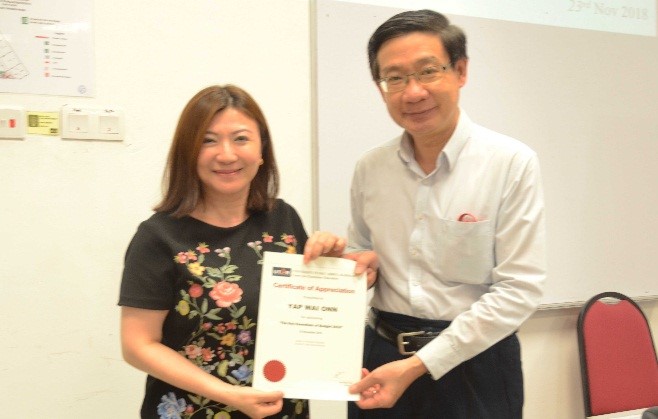
The center jointly organized a talk with the Centre for Extension Education (CEE) on the latest insights presented for Budget 2019. He highlighted the essential elements of the budget and the main proposed tax changes that will takes place. He also shared with the audience on how the Budget 2019 will impact the Malaysian economy and the capital market.
|























